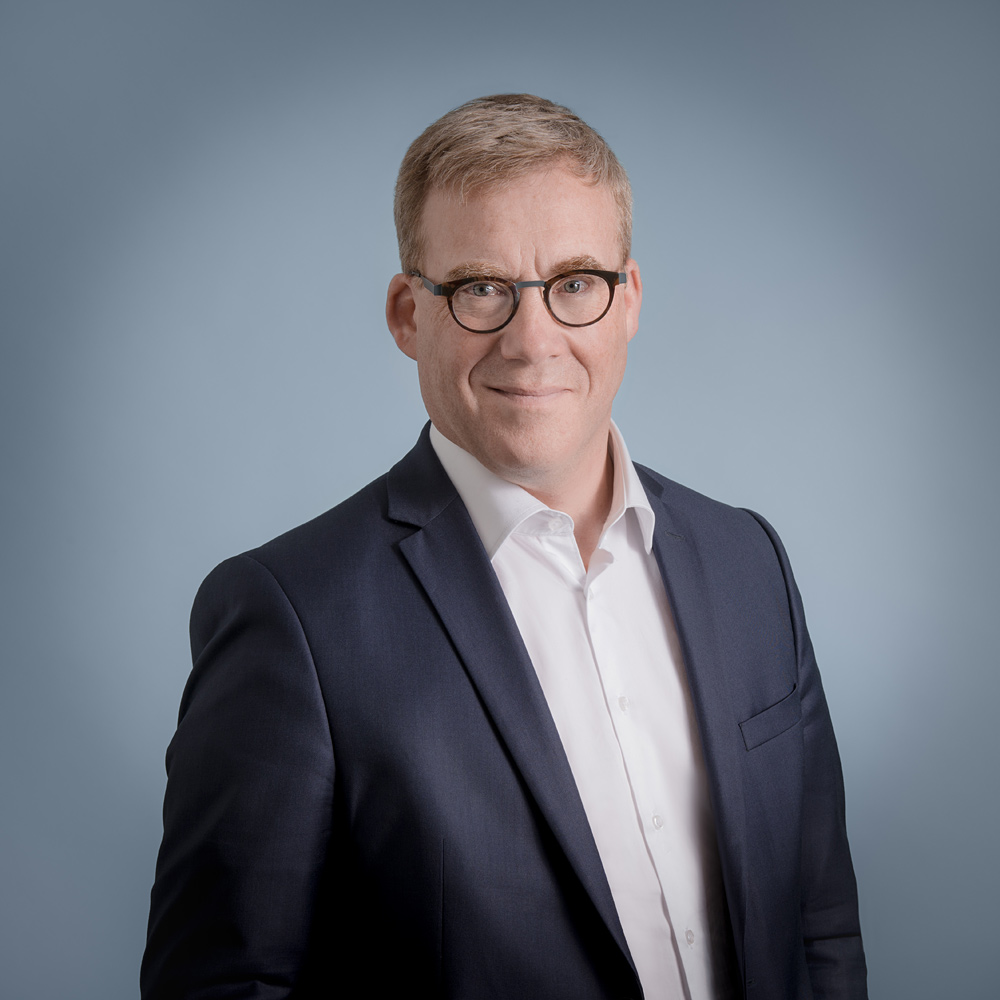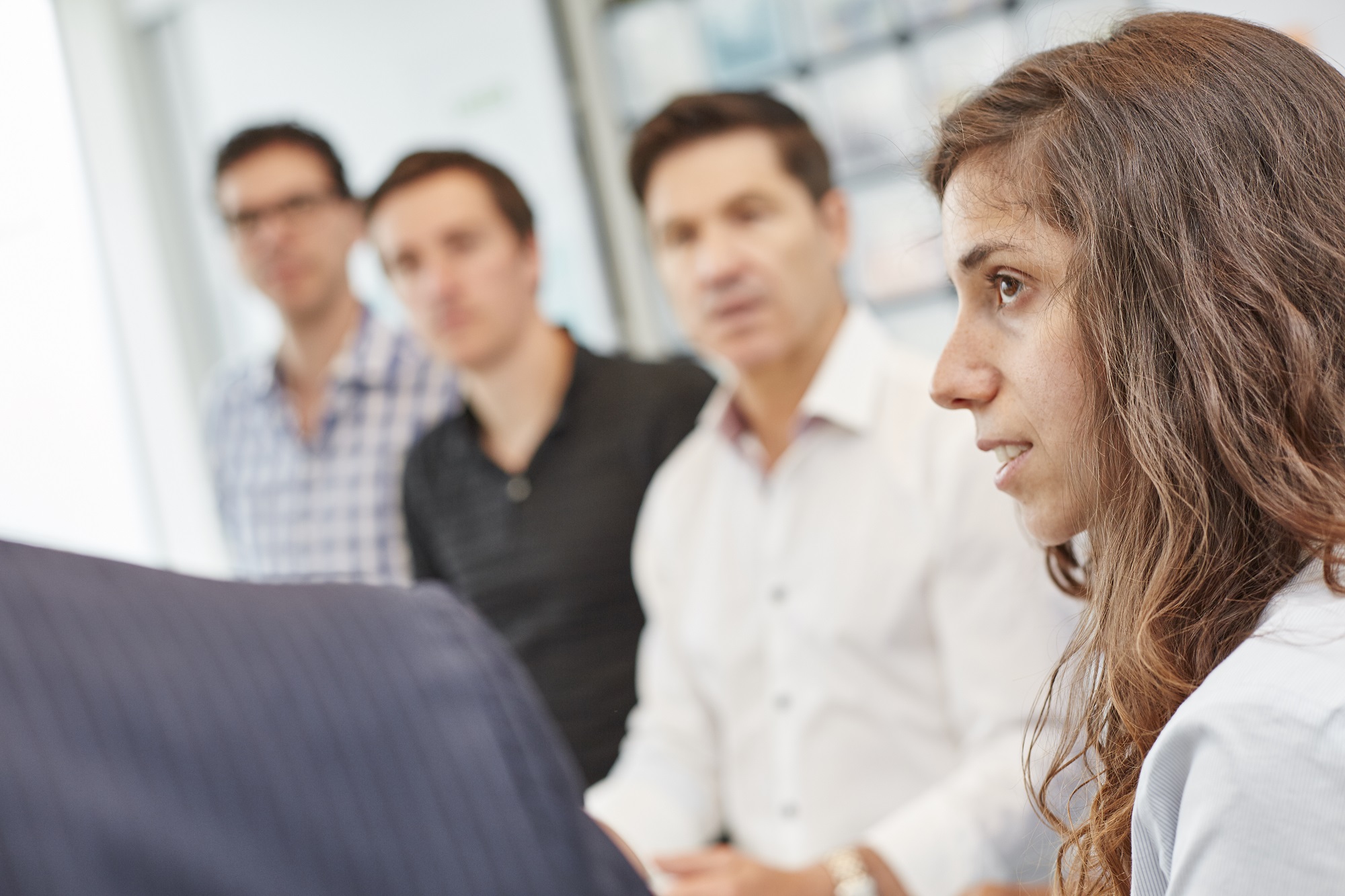"Why would I want to join Thales?" Ten students pop the question to Clément de Villepin
If you could ask the head of Human Resources at Thales anything you like, what would it be? That's the exercise we set a group of young graduates thinking about applying for a job with Thales. Clément de Villepin was happy to oblige, talking about competitive pay, diversity and the quest for meaning – and without dodging any of the tricky questions.

Jeremy: I received a job offer from one of the US tech giants. What would convince me to come and work for Thales instead?
Clément de Villepin:
I understand your dilemma. In both cases, you would be joining a major international tech company. In both cases, you would be part of a very agile, very digital organisation, and you would be working alongside some of the world's leading experts in their respective fields.
To understand Thales, you have to understand what we're doing today and how that has been affected by decades of innovation. The Group's engineers and researchers are working in "socially sensitive" areas such as air mobility, space, urban and national security, and now cybersecurity, data protection and the fight against global warning. That's why we have always questioned ourselves about the impact of our technologies and what our work means for society.
Thales employees are constantly searching for answers. They want to understand the real impact of their work and its bearing on society, the environment and the day-to-day lives of millions of citizens. That soul-searching has always been part of our DNA, because the systems we develop have always had a palpable influence on the way the world works.
When your activities have a direct impact on issues such as national sovereignty, digital inclusion, space exploration, connectivity, mobility, personal safety and data security, you have a duty to look for answers to these questions and to uphold certain ethical values. It's something that really sets us apart from other organisations.
Another point – probably connected to the first one – is that our corporate culture is all about enabling employees to find a balance in their lives that will support their long-term success.
And also, again because of the type of work we do and the range of markets we serve, we can offer them the opportunity to work on a wide variety of projects that will have a lasting effect on the world.
We have always questioned ourselves about the impact of our technologies and what our work means for society.
Gabriel: On the other hand, wouldn't a tech giant pay better?
Clément de Villepin:
Compensation is a key part of what makes a company attractive. We need to be competitive and we try to offer salaries that are high enough to attract the best talent. Above all we at Thales provide opportunities for employees to take part in projects with a high level of scientific and technical complexity, a chance to build compelling career paths within the organisation and to find a sense of meaning in their work. We want people to come to work at Thales at least as much for those reasons as for the pay. We believe that's how they will grow and flourish within the company over the long term.
Karima: Aren't career paths at Thales a bit linear? Wouldn't I end up always doing the same thing?
Clément de Villepin:
I really don't believe that's the case, I can assure you. You can easily spend your whole career at Thales without ever getting bored!
To begin with, we have an extremely diverse spectrum of businesses. You could start in aerospace, for example, and then move into another field such as defence, space exploration or digital security. We go out of our way to help our people move from one universe to another, because we firmly believe that mobility and the career journeys we offer promote diversity and are ultimately beneficial to both our employees and the Group.
Our HR team actively encourages geographic, operational and job mobility in a number of ways. Last year, for example, more than 70,000 employees sat down with their managers as part of our annual cycle of professional development discussions. They had a chance to review their skills and abilities, talk about their future aspirations and decide together about training or career development opportunities.
More broadly, we see Thales as a learning organisation where you will be able to discover different ways of working, expand your skill sets through training and be part of communities of internationally recognised experts working in completely different fields.
Louise: Thales is often talking about "human intelligence". What do you mean by that?
Clément de Villepin:
When we talk about human intelligence, the point we're trying to make is that we can only achieve big ambitions by putting humans at the heart of everything we do. We mean that the men and women of Thales our biggest asset, and that it's thanks to their human intelligence that we can develop the innovations that have built our reputation and our success.
If Thales engineers and researchers manage to develop some of the world's most advanced technologies, it's in large part because they feel fulfilled. They have a passion for what they do, a good work-life balance and the chance to share their ideas and perspectives with colleagues from all over the world. So for Thales, the emphasis on human intelligence is about wanting to provide the best possible "employee experience", for example by offering professional growth and development opportunities, a good work-life balance and a chance for individuals to broaden their perspectives.
In terms of ethics, the focus on human intelligence also serves as a reminder that technology cannot be a substitute for the men and women who use it. This is one of the basic tenets of our Digital Ethics Charter, for example, in which we pledge to ensure that our artificial intelligence systems will always be designed to support human decision-making and not to replace it.
Antoine: I want a family life and a chance to play sport and develop personal projects. How does Thales ensure a good work-life balance?
Clément de Villepin:
You're not the only one to expect all that! As the head of HR for a major company, I also need to spend time with my children, read books and go to exhibitions. It's in the Group's best interests to make sure employees have a good work-life balance, quite simply because it makes us more productive and enables us to thrive in our professional lives over the long term. Thales has nothing to gain by not respecting that balance – it's just not our way of doing things.

Jian: Do you offer international opportunities?
Clément de Villepin:
Absolutely. Thales is an international group with operations in 68 countries and more than 70% of its sales outside France. When you join Thales, you very quickly have to interact with colleagues in other countries around the world. I would even say the ability to work in a multi-cultural environment is an essential skill for Thales employees. And of course a global organisation like Thales offers a whole range of opportunities to work in different countries and regions, whether it be for short periods or for several years at a time.
Rebecca: I'm not sure I want to work for a company that's involved in the defence industry. Doesn't it bother you?
Clément de Villepin:
Naturally I respect everyone's right to say no to defence. At Thales, we strongly believe that designing equipment and solutions for the armed forces helps societies to develop more sustainably. The war in Ukraine is yet another reminder of the need to protect our democracies. Sustainable peace cannot be achieved without stability, and to achieve stability we need to be able to defend ourselves.
Having said that, civil markets account for a large proportion of our business (cybersecurity, aerospace, space, digital identity, etc.), and we open our arms to people of all beliefs and backgrounds. This diversity of opinion is an important asset for a company like ours – it's what drives the conversation internally and keeps us on our toes.
Joshua: What is Thales doing with respect to climate change?
Clément de Villepin:
At Thales, we use our experience and expertise to help to make the world safer, greener and more inclusive. That's what drives us forward and gives our professional lives a sense of meaning and purpose. With respect to climate change, we are basically working on two fronts.
First, we know for a fact that science and technology are going to be part of the planet's response to climate change. Thales is one of the companies that makes the biggest contribution to scientific progress in the world. In fact, Nature magazine has ranked us in the global top 30 companies for advanced research. And we recently stepped up our "clean tech" development strategy, because we believe we have a responsibility to draw on our potential for innovation to help create a more sustainable planet.
By joining Thales, you will have the chance to help build systems that are more "energy sufficient" – in other words systems that consume just the amount of energy they need, and no more. You could be designing satellites that will bring us a better understanding of environmental phenomena, or applying the principles of eco-design to any and all of our products and solutions.
And second, we are steadily reducing our own CO2 emissions and plan to achieve net zero by 2040.
If you are really concerned about environmental causes and want to change things in the right direction, Thales will be the ideal place for you to work. Environmental responsibility is one of the three pillars of our CSR policy, alongside workplace safety and inclusion.
Adriana: What concrete steps are you taking to promote diversity within the Group?
Clément de Villepin:
We know we need to attract people with a variety of different profiles. Diversity boosts our creativity and our potential for innovation because it lets us tackle issues from multiple perspectives and points of view – and because it's the best way to meet the needs of our customers. At the end of the day, diversity is a key driver of performance both for Thales and for our customers.
Whether we're talking about promoting equal opportunities, gender parity, LGBT+ employees or people with disabilities, we have proactive HR policies in place to achieve greater diversity in the Thales workforce. Of course, we still have a long way to go, but we're determined to get there!
For the employment of people with disabilities in France, for example, we have appointed an advisor at each Thales site to support the employees in question, who account for 6% of our workforce today. That makes Thales one of the best-performing companies in Europe on this issue.
Alexandre: If you had to sum up a career at Thales in three key words or ideas, what would they be?
Clément de Villepin:
A passion for technology, collective engagement, and meaning.


